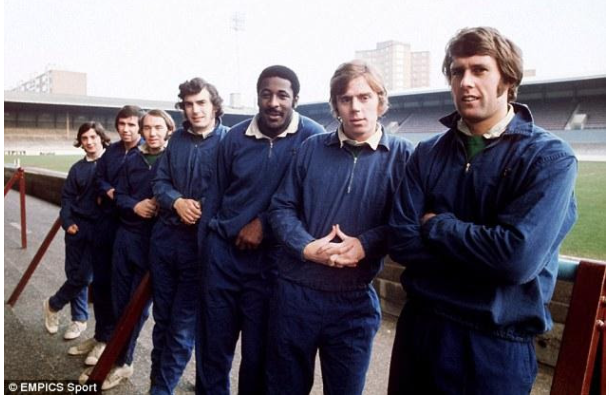Words by Esteban Ramirez
The 1960s was a time of national footballing pride for England, as they had just won the 1966 World Cup, captained by national icon Bobby Moore.
Two years later, a teenager from Bermuda had been scouted by Moore’s team, West Ham United, and within a year of his first trial was playing regular first-team football.
That teenager was called Clyde Best, a name now widely associated with pioneering black footballers into top-flight English football.
Best broke into a West Ham team in its golden era. They had just won the 1964 FA Cup and the 1965 European Cup Winners Cup and contained some of the country’s best players, including the World Cup winning trio of Martin Peters, Sir Geoff Hurst and Bobby Moore OBE.
Known by many succeeding black players as ‘The Legend’, Best made history by being amongst the first black players to play Division 1 football. He became one of the top players in the league, forming a lethal partnership with striker Sir Geoff Hurst.
Labelled a pioneer by former West Ham player and manager Harry Redknapp, Best is commonly referred to as English football’s first black role model for young players.
Unfortunately, Best’s ascendancy coincided with a surge in racial tension in Britain and the rise of the extreme right-wing, nationalist party the ‘British National Front’. The racism garnered by the views of this time made their way into the terraces and onto the pitch.
On a BBC Sounds Sporting Witness podcast, Best recalled the racial abuse he received when playing at away grounds.
In an away match against Everton, Best recalled, “Every time I touched the ball there would monkey chants and abuse. Eventually I just got sick of it”.
However, instead of turning to violence or letting emotions get the better of him, he picked up the ball on the halfway line and beat two players, before sending him the wrong way with a dummy and chipping it over his head into the net.
An attitude that was exemplary of Best’s gritty nature, he would need it again after a harrowing letter received before a 1970 pre-season match vs Norwich, in which he received a threat of pouring acid on his face if he played.
Fearful and angry, Best defied the letter and played. In an interview with the BBC, he later praised the help of fellow players and the police, who protected him as they were coming onto the pitch. The threat turned out to be empty, or may have been quelled by the support shown for Clyde by his fellow teammates.
This incident demonstrated a growing attitude of empathy and support for black people during difficult times, and Best’s resulting career further influenced those attitudes.
In accordance with the precedent he set, West Ham were the first team to field 3 black players in 1972.
Best went played over 200 games for the Hammers, scoring 58 goals, and in January 2006 was awarded an MBE for services to football.

